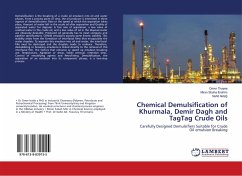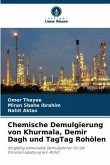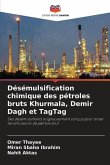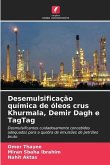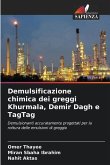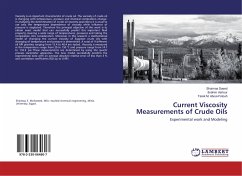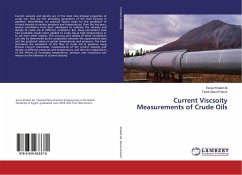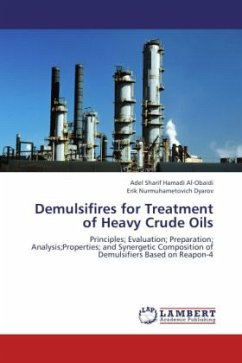Demulsification is the breaking of a crude oil emulsion into oil and water phases. From a process point of view, the oil producer is interested in three aspects of demulsification: Rate or the speed at which this separation takes place, Amount of water left in the crude oil after separation and Quality of separated water for disposal. A fast rate of separation, a low value of residual water in the crude oil, and a low value of oil in the disposal water are obviously desirable. Produced oil generally has to meet company and pipeline specifications. Oilfield emulsions possess some kinetic stability. This stability arises from the formation of interfacial films that encapsulate the water droplets. To separate this emulsion into oil and water, the interfacial film must be destroyed and the droplets made to coalesce. Therefore, destabilizing or breaking emulsions is linked directly to the removal of this interfacial film. The factors that enhance or speed up emulsion breaking are: Temperature, Agitation or shear, Solids removal, retention time, Control of emulsifying agents and Retrofitting. Demulsification, the separation of an emulsion into its component phases, is a two-step process.

